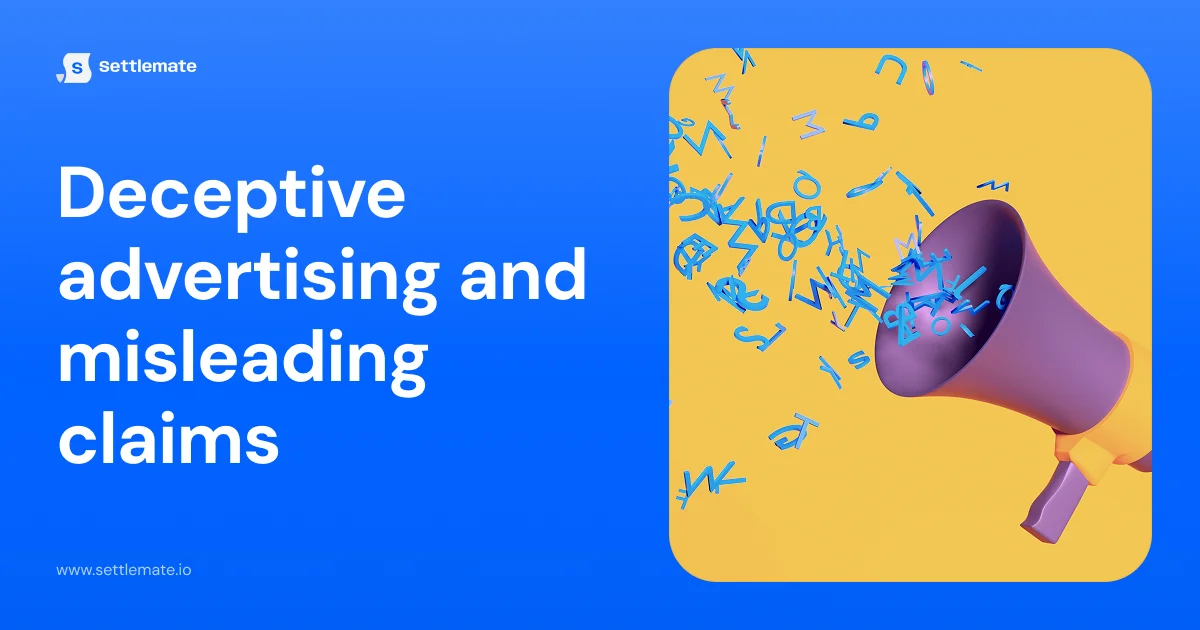You bought the "clinically proven" pill, the green cleaner, or the so-called free trial that started charging before you could cancel.
The law steps in where trust breaks down, asking: what did a reasonable buyer actually believe, and would that belief have changed the purchase?
That's the core of a consumer fraud class action lawsuit: taking thousands of individual frustrations and turning them into one case that can secure refunds or force companies to change their practices.
This guide explains how false ads can escalate into fraud, highlights common types of misleading advertising claims, and guides you through the refund claiming process.
Key takeaways:
- Consumer fraud hinges on deceptive advertising: If a company misrepresents or hides important facts that shape your buying decision, it counts as deception. The FTC has the authority to act, and consumers can pursue class actions to hold companies accountable.
- The most common problem areas keep repeating: False performance claims, greenwashing, drip pricing, auto-renewal traps, and "Made in USA" misrepresentation are among the biggest drivers of consumer fraud class action lawsuits.
- Consumers have more power than they think: By documenting ads, saving receipts, and filing complaints, you add weight to enforcement actions. Checking for ongoing lawsuits can also connect you to refunds you didn't realize were available.
- Settlemate simplifies the process: Instead of chasing legal notices or missing out on payouts, Settlemate helps you quickly find eligible settlements, file claims, and track your refunds securely.
What is consumer fraud and deceptive advertising?
Consumer fraud is a deceptive business practice that causes consumers to suffer financial or other losses. In plain terms, it's when a company tricks you out of your money or misleads you about what you're buying.
Deceptive advertising is one of the most prevalent forms of consumer fraud. It refers to ads that make false or misleading claims, or omit crucial information. U.S. law defines an advertisement as deceptive when it misrepresents or omits information that misleads a reasonable consumer and affects their purchase decision.
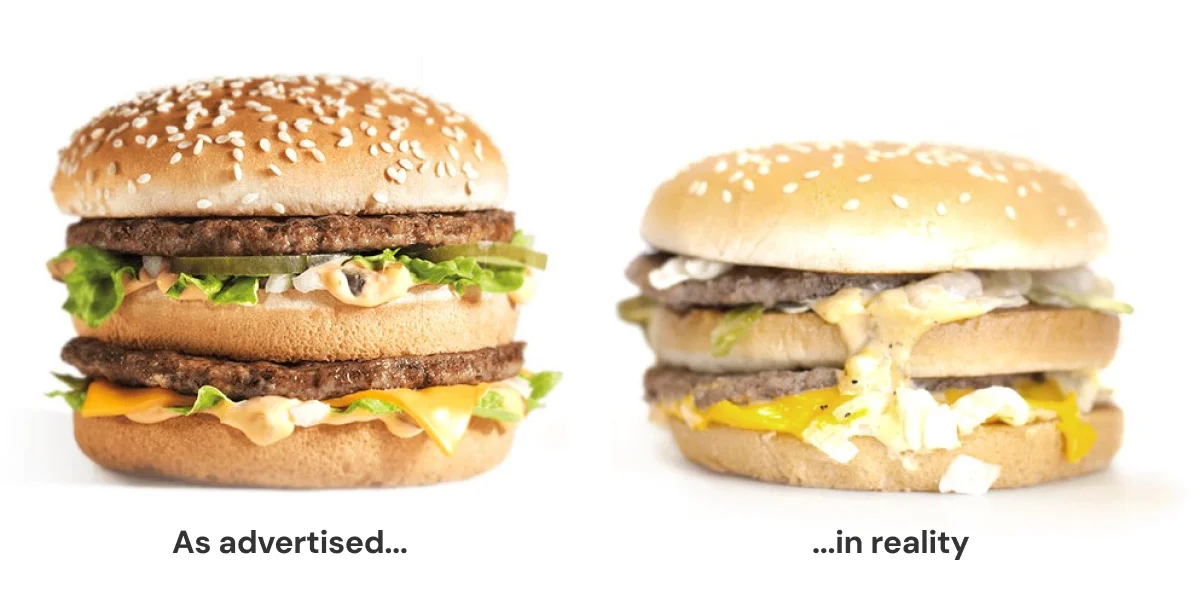
In other words, if an ad lies (or hides the truth) about something important, causing you to buy a product you otherwise wouldn't, that's deceptive advertising. The Federal Trade Commission (FTC) bans "unfair or deceptive acts or practices," giving the FTC broad authority to go after companies that cross the line.
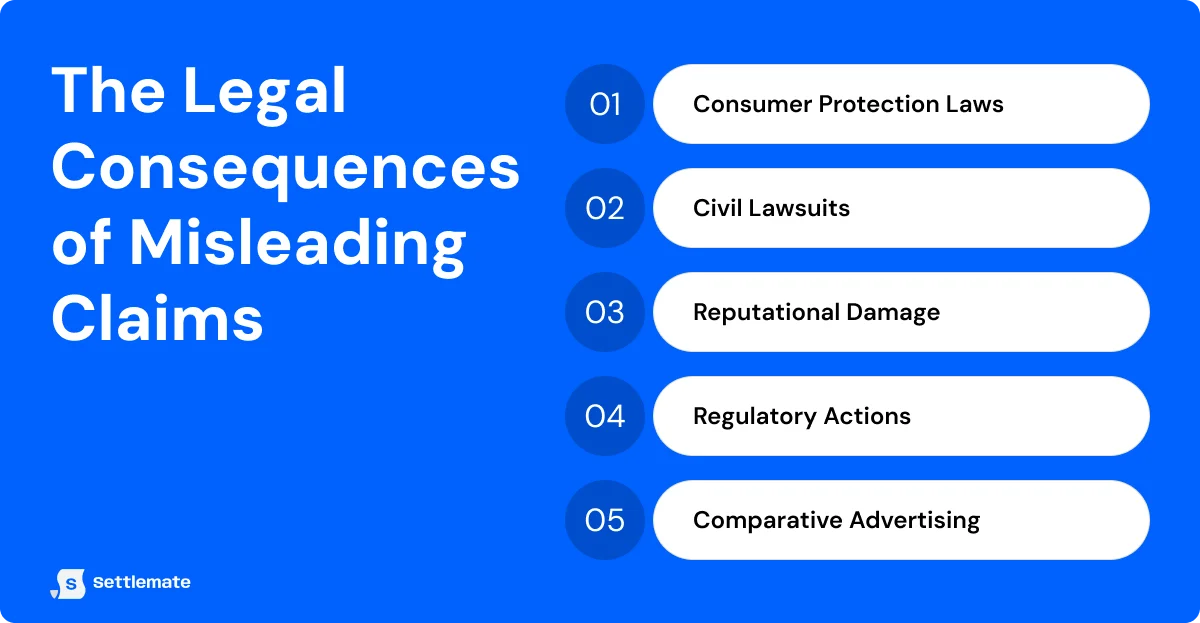
To be clear, not every marketing exaggeration is illegal. The law allows marketers to use "puffery" - those over-the-top, subjective phrases like "the world's best coffee" that no one is taking literally. But it bans factual claims that marketers can prove true or false.
If a cereal box promises to "lower cholesterol by 20%" or a gadget advertises "10 hours of battery life," the company has to back it up with real evidence. When companies can't back up a claim, they cross the line from marketing into deception.
Common types of misleading advertising claims
Here are some of the most common types of misleading advertising claims that have landed companies in legal hot water:
False performance claims
Ads that overhype what a product can do, or outright lie about its effectiveness.
This could be a supplement that claims "magic" weight loss, a pickup truck advertised as getting 30 mpg when it guzzles gas, or an internet service promising speeds it never delivers.
One infamous example was Red Bull's slogan "Red Bull gives you wings," implying energy or performance benefits beyond a typical caffeine boost. A few years ago, consumers sued, arguing they didn't actually get metaphorical "wings" (i.e., any superior energy), and Red Bull paid $13 million to settle that false advertising case.
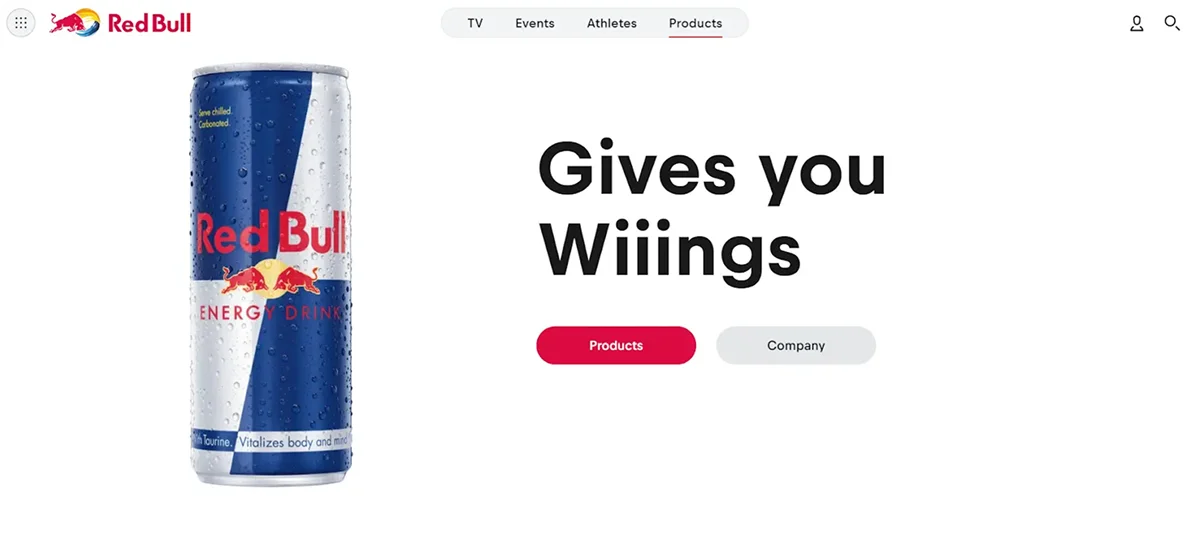
The lesson: if an ad promises something too good to be true, assume it is, and hold companies liable when they turn hype into lies.
As FTC Chair Lina Khan bluntly put it in a recent case involving gig-work recruiting, "Operating in the 'gig' economy is no license for evading the law" when a company lures people in with false earnings promises.
"Greenwashing" (misleading environmental claims)
With sustainability all the rage, many brands have tried to paint themselves greener than they really are. Greenwashing refers to using eco-friendly buzzwords or imagery to imply environmental benefits that don't hold up.
Think of companies with leaf logos that promise "clean" fuel, or plastic packages labeled "recyclable" when, in reality, they're not recyclable in any practical way.
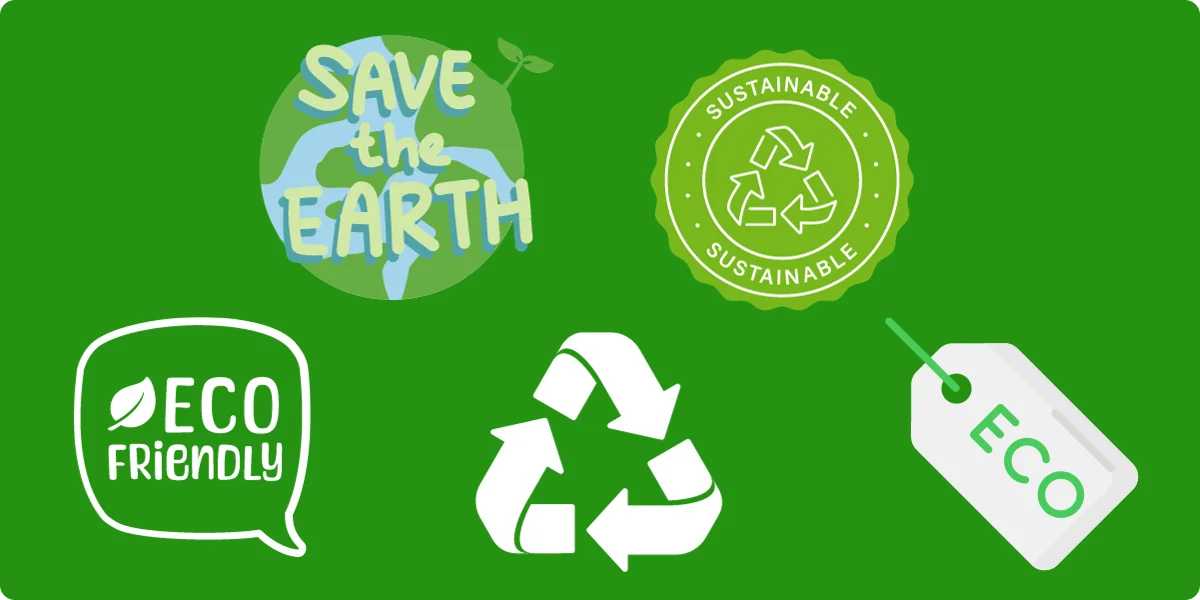
Consumers are increasingly suing over these claims. In fact, more than 150 class-action lawsuits since the 2010s have accused marketers of making deceptive "green" assertions.
In one case, consumers sued a cleaning brand that sold "Earth Friendly" solutions after alleging the products contained ingredients posing environmental risks. That case survived long enough that the company agreed to a settlement rather than continue fighting in court.
Bottom line: Adding a green label to a polluting product is a good way to get sued.
Drip pricing and hidden fees
Ever see a great online price, only to watch extra fees pile up at checkout? That's drip pricing.
Displaying part of a product's price upfront and "dripping" mandatory fees later in the purchase process. It's a form of bait-and-switch that has triggered many angry customers and lawsuits.
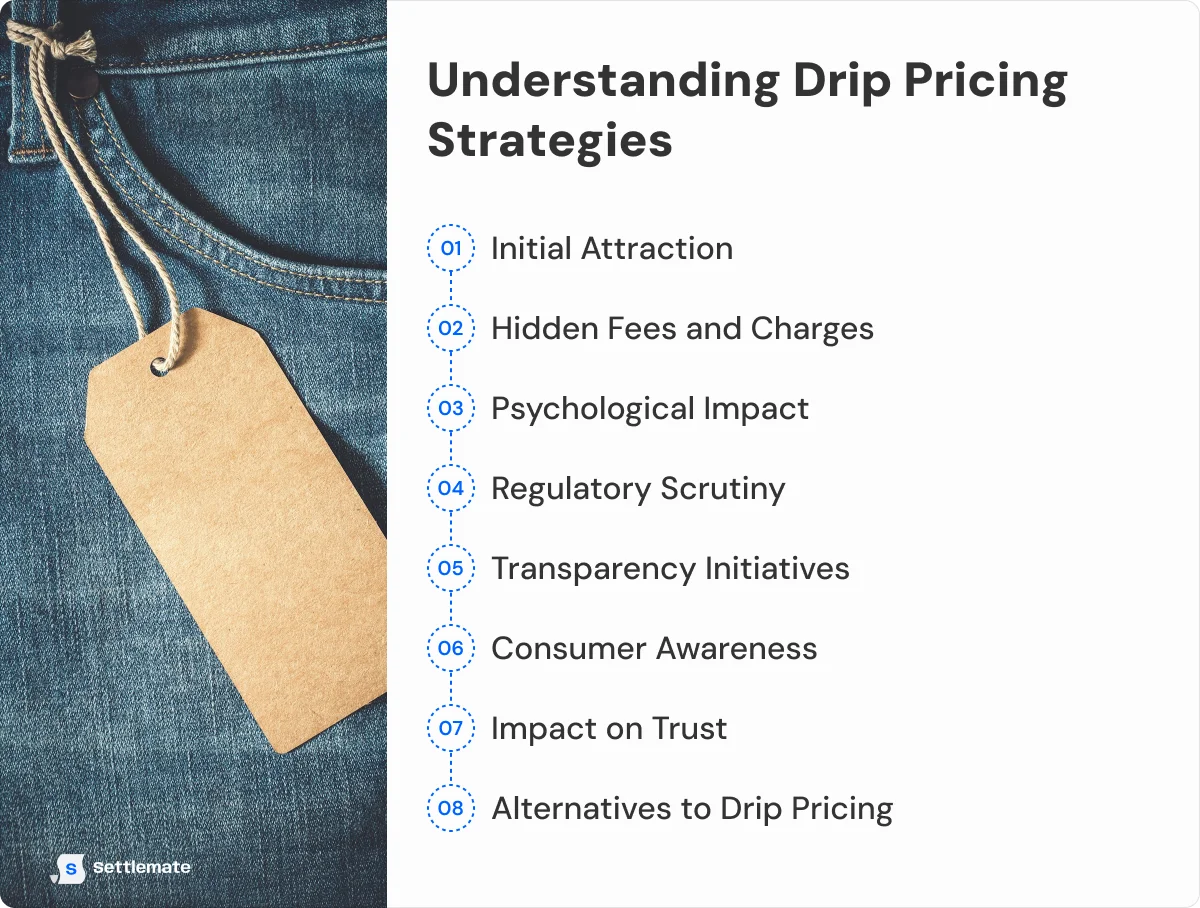
A classic example is a ticket advertised for $50 that ends up costing $65 after a "service fee" and "processing fee" are tacked on at the final step. In California, a new law (the 2024 Honest Pricing (SB 478) law) explicitly outlawed this practice. As of July 1, 2024, businesses there cannot advertise a price that doesn't include all mandatory fees (except taxes and shipping). The law was barely in effect a few weeks before class actions started rolling in.
For consumers, the takeaway is: if a company is sneaking in fees after the fact, it might well be illegal. And if you felt tricked into paying more, you're not the only one.
Auto-renewal traps (subscription deceptions)
Many services lure customers with a free trial or a low introductory rate, then automatically convert them into a paid subscription that's hard to cancel. These negative option or auto-renewal schemes have prompted both lawsuits and new laws.
The deception here is failing to clearly disclose the auto-renewal terms or making the cancellation process a nightmare (e.g., only allowing cancellation by phone with long hold times).
One high-profile case was against weight-loss app Noom, which offered a "risk-free" trial but then auto-billed users and made it cumbersome to cancel. Consumers filed a class action alleging the company's practices violated several states' consumer fraud laws. In 2023, Noom agreed to pay $62 million (including $56 million cash and subscription credits) to settle that case, one of the largest auto-renewal class settlements to date.
Takeaway: Always read the fine print on free trials, and if a company made it nearly impossible to cancel, that's precisely the kind of behavior consumer protection laws aim to stop.
"Made in USA" misrepresentation
Patriotic selling points are powerful. Companies know many Americans love the idea of buying products made domestically. But slapping a "Made in USA" label on something that isn't all or virtually all made in America is flat-out illegal.
The FTC has a strict standard: essentially, all significant parts and processing must be of U.S. origin to market a product as "Made in USA". Violations can lead to fines and consumer redress.
In 2025 alone, plaintiffs filed 13 new class-action lawsuits over misleading "Made in U.S.A." claims, surpassing the total filed in all of 2024.
A notable enforcement example: in 2024, home-goods retailer Williams-Sonoma was hit with a record $3.2 million civil penalty by the FTC for violating a prior order and continuing to mislabel overseas-made goods as American-made.
In short, if a product carries an American flag on the box, it had better live up to the claim.
Major enforcement actions and settlements (2024–2025)
Alongside private consumer fraud class action lawsuits, recent years have brought big FTC moves and costly settlements that show how expensive deceptive advertising can be.
Here's a roundup of a few notable ones:
- Career education deception - $43.5M FTC settlement (2024): In mid-2024, the FTC took down an online career training company called Career Step for targeting U.S. servicemembers and spouses with false ads. The company had promised things like "80% of graduates get jobs in their field" and personal career placement assistance - none of which were true. The result? Career Step agreed to wipe out $27.8 million in student debt and pay $15.7 million in cash refunds to consumers.
- Gig Economy earnings lie (2024–2025): Arise misled gig workers with false "$18/hour" claims, while most earned $12 and paid hundreds for training. The FTC sued under its Business Opportunity Rule, resulting in a $7 million settlement in 2025. More than 98,000 workers are now receiving checks.
- Made in USA fraud - FTC refunds (2024): In late 2024, the FTC mailed out more than $140,000 in refund checks to about 4,000 customers of a New England company that had falsely advertised belts and wallets as "Handcrafted in USA". In reality, the company imported many of those items or built them with significant foreign components.
- Deep River Non‑GMO chips settlement (2025): Old Lyme Gourmet Co., maker of Deep River chips, agreed to a settlement after being sued for labeling its chips with a "Non‑GMO Ingredients" graphic, implying third‑party certification. For a closer look at food safety issues beyond false advertising, check out our guide on the most common food recalls.
What to do if you suspect deceptive advertising
So, what can you do if you think you've been a target of misleading marketing or a downright scam?
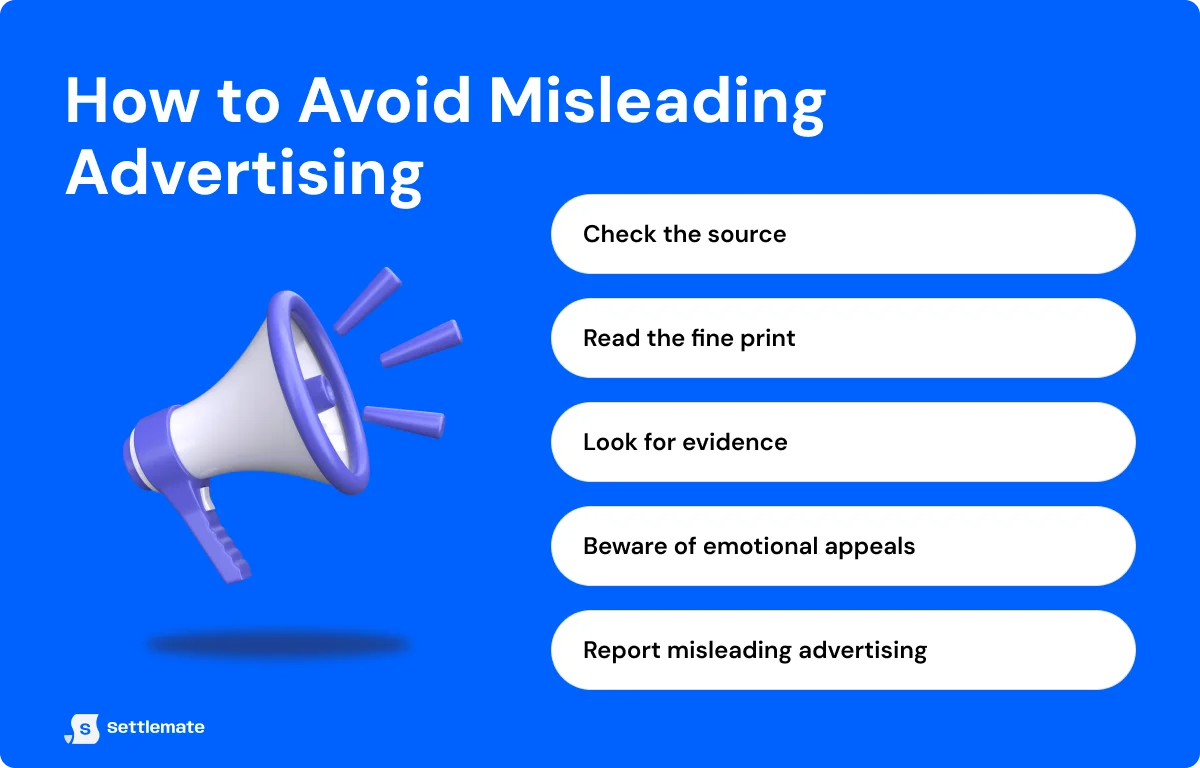
Here are some actionable steps:
- Document everything: Save the advertisement (screenshot the webpage or keep the brochure/email). Keep receipts, order confirmations, and any proof showing what the company promised versus what you received.
- Compare notes: Search online to see if others have the same complaint. Chances are, if a claim was deceptive, you won't be the only unhappy customer. Look on consumer forums, the Better Business Bureau site, or sites like Truth in Advertising (TINA.org) for any mentions of the company's practices.
- Report it: File a complaint with the FTC (at ReportFraud.ftc.gov) and your state's Attorney General or consumer protection office. Even if they don't act immediately, your report adds to the evidence pile.
- Don't engage further and protect yourself: If the issue involves a service or subscription, consider pausing or canceling it (but document your cancellation attempt!). If it's a product making false health claims, stop using it and consult a professional if needed.
- Check for existing lawsuits or settlements: Someone may have already filed a class action regarding the issue. You can search online for "[Product/Company] class action [deceptive advertising]" or check class action tracker websites. If a class action is ongoing, you could join as a class member or stay informed.
How Settlemate simplifies consumer fraud class actions against false advertising
Challenging a company for false advertising can feel overwhelming: legal notices, claim forms, deadlines… It's no wonder billions of dollars in class action settlement money go unclaimed each year.
Class actions serve an important purpose: they enable regular folks to fight big legal battles that wouldn't be worth it individually.
Settlemate is your class action sidekick that tracks class action claims so you keep the money that's rightfully yours.
The app's purpose is to help everyday people claim what they're owed from class action settlements without jumping through hoops.
Here's how Settlemate makes life easier for consumers burned by fraud or false ads:
- Find eligible settlements instantly: No need to search through legal websites or news articles to see if you're part of a class action. Settlemate lets you answer a few simple questions about products you've bought or services you use, and then it matches you with active lawsuits and settlements you might qualify for.
- No legal jargon or lawyers needed: The app translates the legalese into plain English. It guides you through submitting a claim without needing to hire a lawyer or understand complex legal forms. If you're eligible for a payout, Settlemate can help you file the claim in seconds.
- Track your money: Once you've filed a claim, you can use Settlemate to track the status of your refund or payment. No more wondering "Whatever happened to that lawsuit?" or digging through junk mail for a check. You'll get real-time updates and even notifications when new class actions open that you might want to join.
- Peace of mind and privacy: Settlemate keeps your information secure (you can sign in with trusted platforms, and your data is encrypted). And importantly, it ensures you don't miss out just because you weren't aware.
Are you ready to stop losing money to false promises and start getting paid back through a consumer fraud class action lawsuit?
Join Settlemate today and turn false advertising into simple claims and real refunds.



